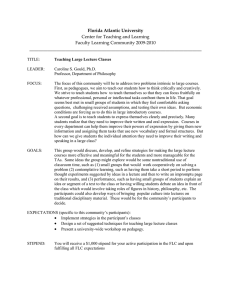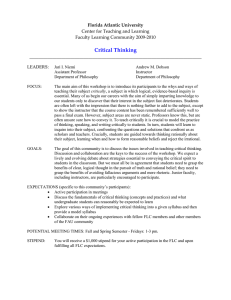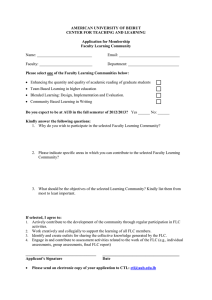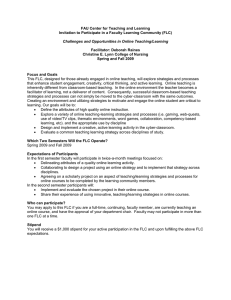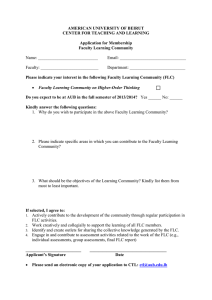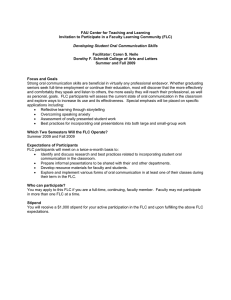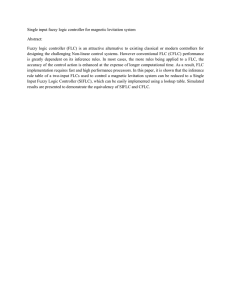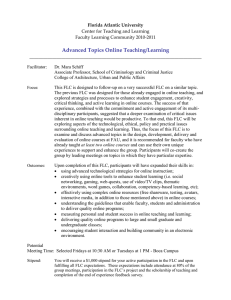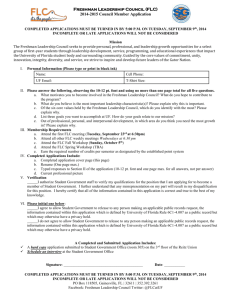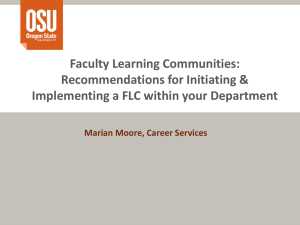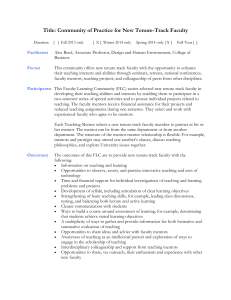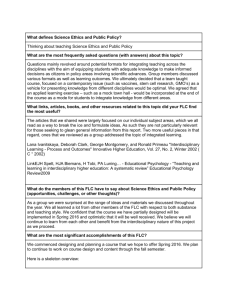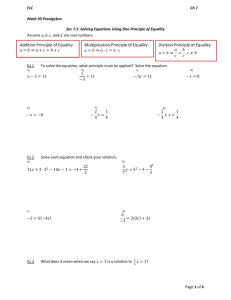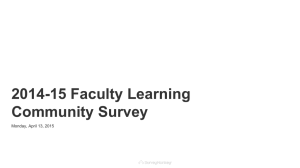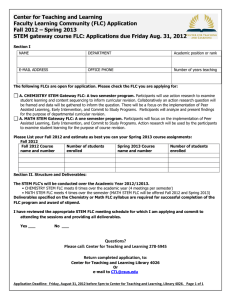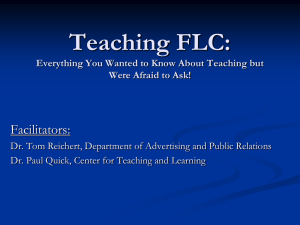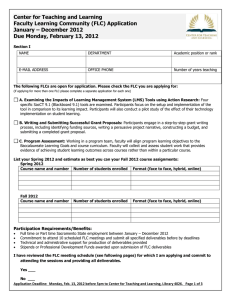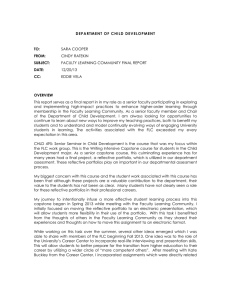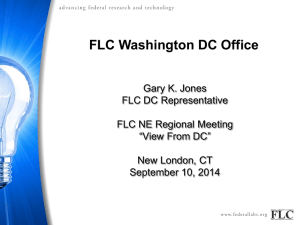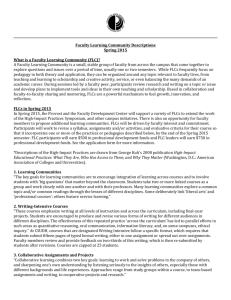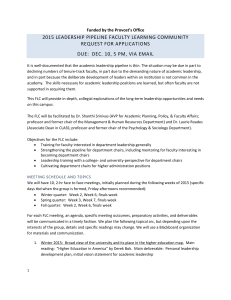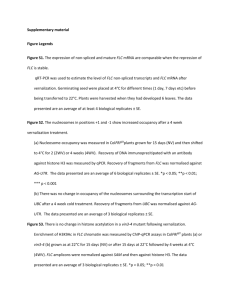Analytic Reflection in the Arts, Humanities, and Social and Natural
advertisement
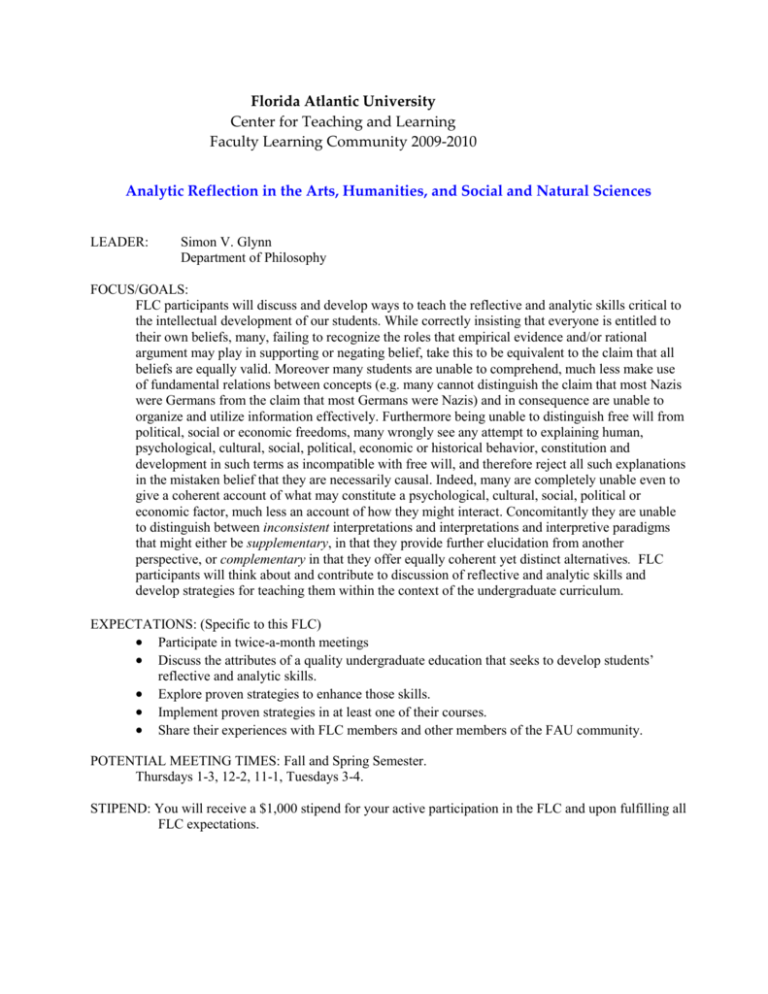
Florida Atlantic University Center for Teaching and Learning Faculty Learning Community 2009-2010 Analytic Reflection in the Arts, Humanities, and Social and Natural Sciences LEADER: Simon V. Glynn Department of Philosophy FOCUS/GOALS: FLC participants will discuss and develop ways to teach the reflective and analytic skills critical to the intellectual development of our students. While correctly insisting that everyone is entitled to their own beliefs, many, failing to recognize the roles that empirical evidence and/or rational argument may play in supporting or negating belief, take this to be equivalent to the claim that all beliefs are equally valid. Moreover many students are unable to comprehend, much less make use of fundamental relations between concepts (e.g. many cannot distinguish the claim that most Nazis were Germans from the claim that most Germans were Nazis) and in consequence are unable to organize and utilize information effectively. Furthermore being unable to distinguish free will from political, social or economic freedoms, many wrongly see any attempt to explaining human, psychological, cultural, social, political, economic or historical behavior, constitution and development in such terms as incompatible with free will, and therefore reject all such explanations in the mistaken belief that they are necessarily causal. Indeed, many are completely unable even to give a coherent account of what may constitute a psychological, cultural, social, political or economic factor, much less an account of how they might interact. Concomitantly they are unable to distinguish between inconsistent interpretations and interpretations and interpretive paradigms that might either be supplementary, in that they provide further elucidation from another perspective, or complementary in that they offer equally coherent yet distinct alternatives. FLC participants will think about and contribute to discussion of reflective and analytic skills and develop strategies for teaching them within the context of the undergraduate curriculum. EXPECTATIONS: (Specific to this FLC) Participate in twice-a-month meetings Discuss the attributes of a quality undergraduate education that seeks to develop students’ reflective and analytic skills. Explore proven strategies to enhance those skills. Implement proven strategies in at least one of their courses. Share their experiences with FLC members and other members of the FAU community. POTENTIAL MEETING TIMES: Fall and Spring Semester. Thursdays 1-3, 12-2, 11-1, Tuesdays 3-4. STIPEND: You will receive a $1,000 stipend for your active participation in the FLC and upon fulfilling all FLC expectations.
